
Paul Vaughn Butterfield was an American blues harmonica player, singer, and bandleader. After early training as a classical flautist, he developed an interest in blues harmonica. He explored the blues scene in his native Chicago, where he met Muddy Waters and other blues greats, who provided encouragement and opportunities for him to join in jam sessions. He soon began performing with fellow blues enthusiasts Nick Gravenites and Elvin Bishop.

John Dawson Winter III was an American singer, guitarist, songwriter, and record producer. Winter was known for his high-energy blues rock albums, live performances, and slide guitar playing from the late 1960s into the early 2000s. He also produced three Grammy Award-winning albums for blues singer and guitarist Muddy Waters. After his time with Waters, Winter recorded several Grammy-nominated blues albums. In 1988, he was inducted into the Blues Foundation Hall of Fame and in 2003, he was ranked 63rd in Rolling Stone magazine's list of the "100 Greatest Guitarists of All Time".

Michael Bernard Bloomfield was an American blues guitarist and composer. Born in Chicago, he became one of the first popular music stars of the 1960s to earn his reputation almost entirely on his instrumental prowess, as he rarely sang before 1969. Respected for his guitar playing, Bloomfield knew and played with many of Chicago's blues musicians before achieving his own fame and was instrumental in popularizing blues music in the mid-1960s. In 1965, he played on Bob Dylan's Highway 61 Revisited, including the single "Like a Rolling Stone", and performed with Dylan at that year's Newport Folk Festival.

Al Kooper is a retired American songwriter, record producer, and musician, known for joining and naming Blood, Sweat & Tears, although he did not stay with the group long enough to share its popularity. Throughout much of the 1960s and 1970s he was a prolific studio musician, including playing organ on the Bob Dylan song "Like a Rolling Stone", French horn and piano on the Rolling Stones song "You Can't Always Get What You Want", and lead guitar on Rita Coolidge's "The Lady's Not for Sale". Kooper produced a number of one-off collaboration albums, such as the Super Session album that saw him work separately with guitarists Mike Bloomfield and Stephen Stills. In the 1970s Kooper was a successful manager and producer, recording Lynyrd Skynyrd's first three albums. He has had a successful solo career, writing music for film soundtracks, and has lectured in musical composition. Kooper was selected for induction for the Rock and Roll Hall of Fame in 2023.

Elvin Richard Bishop is an American blues and rock music singer, guitarist, bandleader, and songwriter. He was inducted into the Rock and Roll Hall of Fame as a member of the Paul Butterfield Blues Band in 2015, and in the Blues Hall of Fame as a solo artist in 2016.

Tommy Castro is an American blues, R&B, and rock guitarist and singer. He has been recording since the mid-1990s. His music has taken him from local stages to national and international touring. His popularity was marked by his winning the 2008 Blues Music Award for Entertainer of the Year.

John Paul Hammond is an American singer and musician.
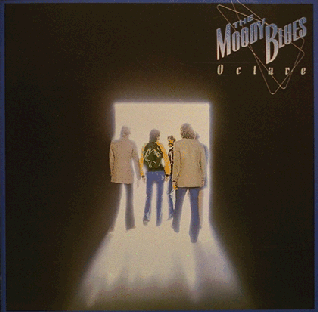
Octave is the ninth album by the Moody Blues, released in 1978, and their first release after a substantial hiatus following the success of the best-selling Seventh Sojourn in 1972. Released after a considerable break, which saw The Moody Blues returning in an era of punk music and disco, Octave produced a reduced commercial outcome for the band, but reached No. 6 in the United Kingdom and went platinum in the United States, where the album reached No. 13. The album produced the hit single "Steppin' in a Slide Zone", which hit No. 39 in the US, in addition to "Driftwood". The album's title is a musical pun: it references both the notion of an octave; and as a word derived from the Latin octavus it refers to this being the eighth album by this line-up of the Moody Blues.

The Electric Flag was an American blues/rock/soul band from Chicago, led by guitarist Mike Bloomfield, keyboardist Barry Goldberg and drummer Buddy Miles, and featuring other musicians such as vocalist Nick Gravenites and bassist Harvey Brooks. Bloomfield formed the Electric Flag in 1967, following his stint with the Butterfield Blues Band. The band reached its peak with the 1968 release, A Long Time Comin', a fusion of rock, jazz, and R&B styles that charted well in the Billboard Pop Albums chart. Their initial recording was a soundtrack for The Trip, a movie about an LSD experience by Peter Fonda, written by Jack Nicholson and directed by Roger Corman.

The Paul Butterfield Blues Band is the self-titled debut album by the American blues rock band of the same name, released in 1965 on Elektra Records. It peaked at number 123 on the Billboard albums chart. In 2012, the album was ranked number 453 on Rolling Stone's list of "The 500 Greatest Albums of All Time". It is ranked at number 11 on DownBeat's list of the top 50 blues albums.
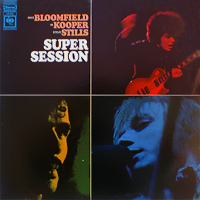
Super Session is an album by singer and multi-instrumentalist Al Kooper, with guitarists Mike Bloomfield on the first half and Stephen Stills on the second half. Released by Columbia Records in 1968, it peaked at No. 12 on the Billboard 200 during a 37-week chart stay and was certified gold by RIAA.
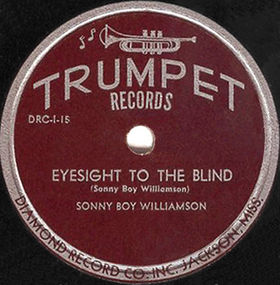
"Eyesight to the Blind" is a 12-bar blues song written and recorded in 1951 by Sonny Boy Williamson II. He also recorded the related songs "Born Blind", "Unseeing Eye", "Don't Lose Your Eye", and "Unseen Eye" during his career. The Larks, an American rhythm and blues group, recorded the song, which reached number five on the R&B charts in 1951. Several musicians subsequently recorded it in a variety of styles. The Who adapted Williamson's song for their rock opera Tommy.

East-West is the second album by the American blues rock band the Butterfield Blues Band, released in 1966 on the Elektra label. It peaked at No. 65 on the Billboard pop albums chart, and is regarded as highly influential by rock and blues music historians.
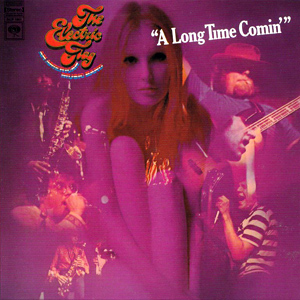
A Long Time Comin' is the first album by American rock band the Electric Flag, released in 1968. The album has a mix of musical styles, including soul along with blues and rock, with a horn section.

It's Not Killing Me is the debut solo album by American blues guitarist Mike Bloomfield. It was released in 1969 through Columbia Records. Following his success with the Paul Butterfield Blues Band, The Electric Flag, and in the Super Session recordings with Al Kooper, Bloomfield teamed up with former colleagues to record this largely self-written album.
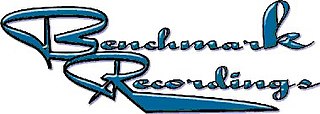
Benchmark Recordings is a record label that was founded in 2000 by music industry veterans Bill Coben and Denny Bruce.
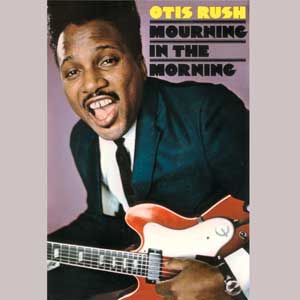
Mourning In the Morning is an album by the American blues singer and guitarist Otis Rush, released in 1969. Characterized as his first album, Rush had been cutting singles since 1955. The album fuses Rush's deep blues sound with soul and rock. The album was panned by many critics, but has since developed a cult following.

Fathers and Sons is the seventh studio album by the American blues musician Muddy Waters, released as a double LP by Chess Records in August 1969.

True to the Blues: The Johnny Winter Story is a compilation album by blues rock guitarist and singer Johnny Winter. Comprising four CDs, and packaged as a box set, it contains songs selected from numerous albums – some recorded in the studio and some live – released over a 43-year period, from 1968 to 2011, as well as several previously unreleased tracks. The box set also includes a 50-page booklet of essays and photos. It was released by Legacy Recordings on February 25, 2014.
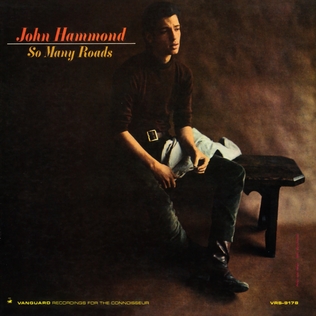
So Many Roads is a 1965 studio album by John P. Hammond, backed by several musicians who would go on to form The Band.




















